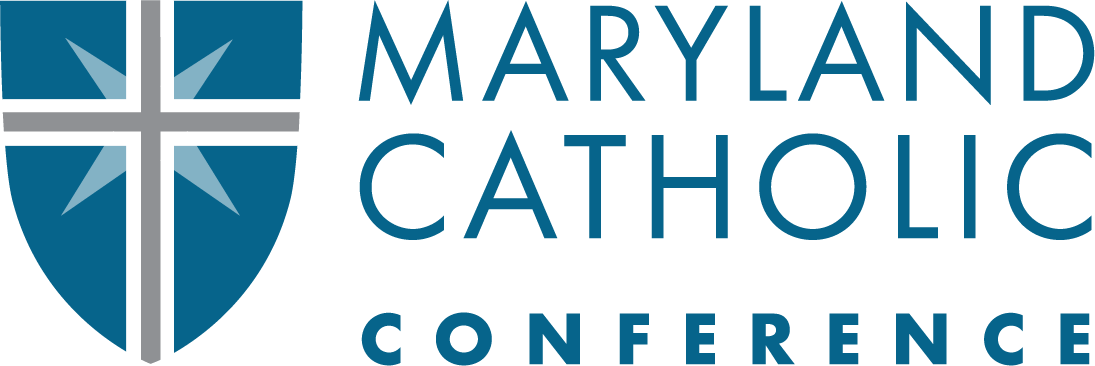Our Issues
Education & Youth Justice
The Maryland Catholic Conference legislative priorities surrounding education and youth justice are extrinsically interwoven with the promotion of strong families, whether it be access to a quality education or promotion of systems of social justice that affect the daily stability of Maryland’s families.
DOES NOT SHOW
Education
Access to diverse and quality educational choice is integral to the Church’s recognition that parents are the first educators of their children. Education also is the first line of defense against the cycle of poverty that often inhibits family stability.
Maryland’s Catholic schools educate 46,000 students annually and have been providing high-quality education to Maryland students for more than 200 years. Our schools are richly diverse, welcoming students from various ethnic, racial, economic and religious backgrounds.
The Maryland Catholic Conference actively seeks to support educational options and assistance for families and schools. This includes direct financial assistance through the Maryland state budget that provide $23 million in assistance annually to support students and non-public schools that serve them.
- The Nonpublic Textbook Program helps families save money on textbook and technology costs, with lower-income parents receiving significantly greater funding.
- The Senator James E. “Ed” DeGrange Nonpublic Aging Schools Program and The Nonpublic Schools Safety Improvements Program assist schools with aging infrastructure to fund improvements, and school safety measures. Higher funding is provided to schools with older buildings and significant numbers of low-income students.
- The BOOST Scholarship Program (Broadening Options and Opportunities for Students Today Program) provides scholarships for families of lower-income students to choose the educational option that is the best fit for their child, a principle inherent to Catholic social teaching. BOOST has provided 20,000 scholarships for students to attend Catholic or other non-public schools.
Family
The family unit is the foundation given by nature to all human society and future generations. In light of the Church teaching on family and our priority on family as the foundation of our society that Pope Francis lays out in Amoris Laetitia (The Joy of Love), the Maryland Catholic Conference supports legislation that promotes the stability of marriages and families.
Our work is based on these principles:
- Mothers and fathers should be afforded every opportunity to raise their children in a stable and nurturing home.
- All families raising children, whether headed by biological, adoptive or single parents, grandparents or guardians must have access to decent jobs and family-friendly work environments, safe childcare and excellent education.
- Public policies should support all parents in every aspect of daily life and further parents’ ability to provide the basic necessities of food, clothing, housing and healthcare for their children.
Adoption. Pope Saint John Paul II said that to “adopt a child is a great work of love.” The Conference supports policies that promote adoption and resources to assist adoptive families. Our laws should support parents who choose to provide a stable home to a child through adoption, and our state should provide resources that enable prospective adoptive parents greater ability to become a loving home for a child.
Restorative Justice
Certain aspects of our judicial and corrections systems can act as barriers to maintaining strong families. The Maryland Catholic Conference supports criminal justice reform efforts in promotion of families and human dignity.
This includes efforts to bring about restorative justice, which means viewing crime in terms of the people and relationships that were harmed rather than the law that was broken. Restorative justice seeks to uphold human dignity and promote the healing, accountability and hope of redemption for all involved.
Church teaching holds that the criminal justice system should:
- Preserve and protect the common good of society
- Restore public order
- Restore the offender
The United States Conference of Catholic Bishops also has stressed the importance of recognizing the racial and economic disparities that result in a disproportionate impact against individuals who are low-income or persons of color.
We support restoration and reintegration of offenders over lengthy, non-rehabilitative periods of incarceration. Those can have a crippling effect on families by disrupting support systems, postponing education and interrupting the economic stability of already-marginalized communities.
Among the initiatives for which we advocate:
- State resources for effective programs for crime prevention, rehabilitation, education, substance abuse and mental health treatment, and probation, parole and reintegration programs
- Policies to reduce recidivism and incarceration for nonviolent offenders
- State investment in alternative programs, policies and/or services to uphold the dignity of all those affected by our system of incarceration and to bring restoration to victims, offenders, and their communities
- Support to help individuals re-entering society avoid homelessness, unemployment, poverty, substance abuse, emotional and psychological stress and the social isolation that can lead to recidivism and harm human dignity.
- Safeguards for youth offenders, such as banning life in prison without the possibility of parole, not automatically charging youth as adults regardless of circumstance, and allowing cases to be resolved without an admission of guilt on the record, particularly when addressing an underlying social issue would be a more restorative and productive measure
See our restorative justice resources
